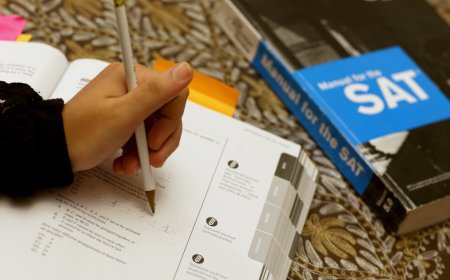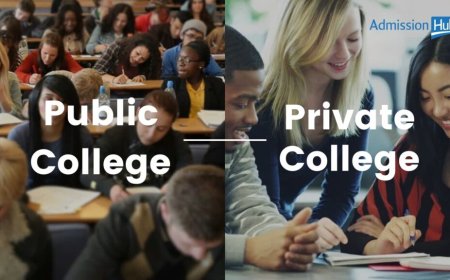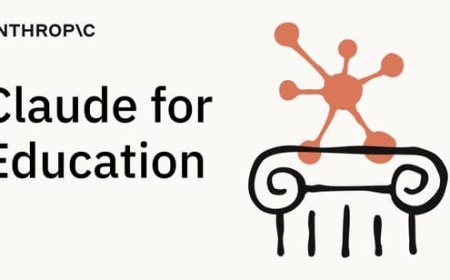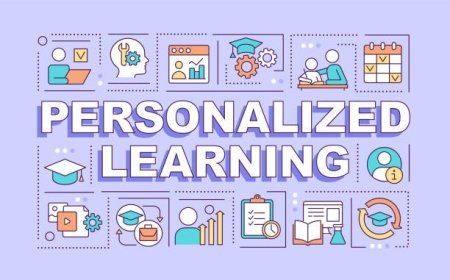5 Study Habits Every Successful US Student Swears By
Master the 5 study habits top U.S. students use to stay focused, boost grades, and manage time effectively—practical tips that actually work.

5 Study Habits Every Successful US Student Swears By outlines essential strategies that contribute to the academic success of students in the United States. This guide focuses on five core study habits—time management, goal setting, an optimal study environment, active learning techniques, and regular review practices—that are widely endorsed by high-achieving students. Understanding and implementing these habits not only enhances learning efficiency but also fosters motivation and academic performance, making them crucial for students aiming for success in their educational endeavors.
The significance of effective study habits is underscored by the competitive nature of academic environments, where students often seek to differentiate themselves through superior performance. Time management, for instance, is regarded as foun- dational; successful students utilize planners and structured schedules to balance coursework and commitments, thus maximizing their study efficiency.[1][2] Similarly, goal setting helps maintain direction and motivation, encouraging students to estab- lish clear, achievable objectives that enhance both learning and satisfaction.[3]
Creating an effective study environment is another pivotal aspect that influences concentration and productivity, as a well-organized and distraction-free space can significantly enhance engagement with the material.[4] Furthermore, the integration of active learning techniques, such as self-quizzing and collaborative study sessions, has been shown to reinforce understanding and retention, making these approaches popular among successful learners.[5]
Despite the benefits of these habits, challenges persist, including issues related to time management and motivation. Students often struggle to maintain consistent study practices, particularly in the face of distractions or competing priorities. This highlights the importance of ongoing reflection and adjustment of study habits to accommodate individual needs and promote continuous improvement in academic performance. The strategies outlined in this guide offer valuable insights for students striving to enhance their learning experiences and achieve their academic goals.
Common Study Habits
Study habits play a crucial role in determining a student's academic performance and success. These habits encompass various practices that can significantly enhance the learning process and motivate students. Effective study habits are typically a combination of study methods and skills, tailored to individual preferences and cognitive processing styles[6]. Below are some common study habits adopted by successful students in the United States.
Time Management
Time management is widely recognized as the cornerstone of effective studying[1]. Successful students prioritize tasks, utilize planners, and adhere to schedules, which helps them maximize their study efficiency. Developing a study schedule allows students to allocate specific times for different subjects, ensuring a consistent routine that can lead to improved performance[2]. The Pomodoro Technique is a popular method that enhances focus and concentration by incorporating breaks at set inter- vals, allowing students to work more efficiently without burnout[7].
Goal Setting
Setting clear and achievable goals is another vital study habit. By establishing specific performance goals for each study session, students can maintain direction and moti- vation[3]. Successful students are encouraged to create goals that are SMART—spe- cific, measurable, achievable, relevant, and time-bound[3]. This focused approach not only helps in retaining information but also makes the study process more rewarding.
Study Environment
The study environment significantly affects concentration and productivity. Finding a quiet and comfortable place to study minimizes distractions and allows for deeper engagement with the material[4]. Students often report that a well-organized study space, free from interruptions, enhances their learning experience.
Active Learning Techniques
Incorporating active learning strategies is essential for effective studying. Techniques such as self-quizzing, summarization, and self-explanation are proven to be more effective than passive review methods[5]. Successful students often engage in study groups, allowing them to discuss and explain concepts to peers, which reinforces their understanding and retention of the material[4].
Regular Review and Practice
Consistent review and practice are key components of successful study habits. Students who regularly revisit their notes and engage in practice tests typically perform better on exams[6]. Spacing out study sessions rather than cramming is
Collaborative Learning
Collaborative learning is a pivotal study habit embraced by successful students in the United States. It involves strategic group formation that enhances accountability and promotes effective learning through shared knowledge and resources.
Forming Study Groups
Effective students are proactive in forming study groups that are tailored to their academic needs. It is essential to start by connecting with classmates from each course to lay the groundwork for a study group. This can lead to a larger collective as more students notice the initiative being taken to create a collaborative environment. Hoffer emphasizes the importance of taking the lead in organizing these groups, suggesting that students should select a time and location for meetings, thereby encouraging participation among classmates[3].
Benefits of Study Groups
The advantages of study groups are manifold. Members can support each other through challenging material, provide diverse perspectives, and maintain motivation towards their studying goals. Collaborative environments also foster accountability, as students hold each other responsible for completing assignments and preparing for exams. Engaging in discussions during group study sessions helps reinforce understanding of the material, as explaining concepts to others solidifies one's own comprehension[4]. Additionally, the social aspect of studying in groups makes the process more enjoyable, which can further enhance learning outcomes[9].
Structure and Management of Study Groups
To maximize effectiveness, study groups should be structured with clear roles and responsibilities aligned with individual strengths. It is beneficial to use project
management tools to outline tasks and deadlines, ensuring that the group remains organized and focused[10]. Establishing guidelines for communication and meeting times is crucial to accommodate the diverse schedules of group members, particu- larly in virtual settings[11]. Choosing a confident group leader can also streamline decision-making and enhance group dynamics.
Active Learning Techniques
Incorporating active learning techniques within study groups can significantly en- hance retention and understanding. This includes summarizing material in one's own words, teaching concepts to peers, and using self-testing methods such as flashcards or practice quizzes[11][4]. Such practices encourage active recall, which is a proven method for improving knowledge retention. Engaging family members or friends in
Utilizing Campus Resources
Students should also be aware of available campus resources that promote collabo- rative learning, such as writing studios or workshops. These resources not only offer academic support but also provide opportunities to meet fellow students interested in forming study partnerships[3][6]. Additionally, utilizing office hours with professors can enhance the collaborative learning experience, as instructors can offer guidance and clarify difficult concepts, thereby fostering a supportive educational environment- [3].
Successful Student Testimonials
Insights from High Achievers
Students often share their experiences and strategies that contribute to their acade- mic success. Many high-achieving students emphasize the importance of attending lectures regularly and engaging actively with the material. For instance, a recent study indicated that 79.0% of high achievers consistently attended lectures, which significantly correlated with their likelihood of obtaining higher grades (OR = 1.6,
Motivation and Study Techniques
Motivation emerges as a crucial factor influencing student success. Bonsaksen et al. found that students who sought meaning in their studies tended to achieve higher GPAs[6]. Successful students often employ various study techniques, such as active recall and consistent revision. For example, high achievers frequently skimming ma- terial before deep memorization, which they believe helps solidify their understanding of complex subjects[6][4]. Furthermore, incorporating spaced testing into their study routine allows them to identify knowledge gaps and reduces anxiety associated with assessments[4][12].
Effective Study Environments and Group Dynamics
Creating an effective study environment is another common theme among successful students. Many reported finding quiet locations to study, minimizing distractions, and using study groups to enhance comprehension through collaborative learning[4][12]. Students often express how study groups provide accountability and diverse per- spectives, making the studying process more enjoyable and effective. For example, group members can quiz each other and discuss challenging concepts, reinforcing their understanding[4][13].
Personal Experiences and Continuous Improvement
Students also stress the importance of self-reflection and setting realistic goals. By continuously evaluating their study habits and adjusting their techniques, they en- hance their learning experience. Melissa Mora-Gonzalez, a student at UC Berkeley, suggests being patient and kind to oneself during the learning process, emphasizing that finding enjoyment in studies can alleviate stress[13][14]. Additionally, many students advocate for the practice of testing oneself regularly to reinforce memory retention and boost confidence during exams[12][14].
Tools and Resources for Developing Study Habits
Developing effective study habits is essential for academic success, and various tools and resources are available to assist students in this process. These resources range from digital applications to traditional methods, each offering unique benefits to enhance learning.
Digital Tools
Flashcard Applications
Flashcards are a popular and effective study tool that can help students memorize definitions, facts, and concepts. Digital flashcard platforms such as Brainscape and Quizlet allow students to create personalized study decks or use those created by others. These applications often include features such as interactive quizzes and games to reinforce learning and promote active recall, which is critical for memory retention[15][16].
Study Scheduling Apps
Numerous apps are designed to help students manage their time effectively. These applications can assist in creating a study schedule, setting reminders, and tracking progress towards specific goals. By utilizing these tools, students can minimize procrastination and maintain a consistent study routine[17].
Traditional Resources
Study Groups
Forming study groups can provide students with additional support and motivation. Collaborative learning environments allow students to discuss challenging topics, quiz each other, and share different perspectives on the material. Many colleges offer resources for students to find study partners or join study groups, which can enhance their understanding of the subject matter[3].
Office Hours
Utilizing professor office hours is an underutilized yet effective strategy for students seeking help with course material. Engaging with instructors during these times allows students to clarify concepts, seek guidance, and build a rapport that can enhance their learning experience[3]. Professors often appreciate proactive students who seek assistance, fostering a supportive academic environment.
Self-Help Strategies
Goal Setting and Reward Systems
Setting specific, achievable study goals can motivate students to stay focused and committed to their study habits. Coupled with a reward system, where students treat themselves for meeting these goals, this strategy can improve motivation and make studying more enjoyable[4]. Small rewards can range from breaks to indulging in a favorite snack after completing a study session.
Active Learning Techniques
Incorporating active learning techniques, such as teaching others or summarizing information in one's own words, can reinforce understanding and retention of the material. By explaining concepts to peers or rewriting notes, students engage more deeply with the content, promoting better recall during exams[18][19].
These tools and resources are instrumental in helping students cultivate effective study habits, ultimately contributing to their academic success. By integrating digital tools, traditional resources, and self-help strategies, students can enhance their learning processes and outcomes.
Psychological Mechanisms Behind Effective Study Habits
Overview of Study Habits
Study habits encompass the various behaviors and techniques that students employ to enhance their learning and academic performance. These habits are influenced by a range of psychological mechanisms that can significantly affect students' ability to retain and recall information effectively. Among the most critical elements are motivation, cognitive processing, and the application of specific study strategies.
Key Psychological Principles
Active Recall
One of the most powerful techniques in studying is active recall, which involves testing oneself on the material rather than passively reviewing it. Research has demonstrated that active recall promotes stronger memory retention by engaging the brain in retrieving information, thereby enhancing the "testing effect"—a phenomenon where information is more likely to be transferred from short-term to long-term memory through retrieval practices.[20][21] Studies show that students who employ active recall outperform those who rely on traditional methods such as re-reading, confirming that active engagement with the material is essential for effective learn- ing.[18]
Spaced Repetition
Spaced repetition is another effective study strategy that leverages the psychological concept known as the forgetting curve, which illustrates how information retention declines over time without reinforcement.[11][22] By revisiting information at strate- gically spaced intervals, students can significantly improve their long-term memory retention. This technique aligns with the theory of disuse, suggesting that partially forgetting information and then recalling it strengthens memory connections.[22][23] Utilizing spaced repetition allows students to optimize their study sessions and combat the natural decline in memory retention that occurs over time.
Motivation and Goal Setting
Motivation plays a crucial role in establishing effective study habits. Setting realistic and achievable goals can enhance a student's focus and determination, leading to more productive study sessions.[4] By creating a structured study environment that minimizes distractions and encourages positive behaviors, students are more likely to develop consistent study habits that support their academic success.
References
[1] : The impact of study habits and personal factors on the academic ...
[2] : Top 10 Habits of Highly Effective Students You Need to Follow - Reddit
[3] : 10 Habits of Highly Effective Students - Engineering
[4] : The Pomodoro Method: Study Smarter, Not Harder | Coursera
[5] : 7 Study Habits of Highly Effective Freshmen - Office of Admissions
[6] : 11 Good Study Habits to Develop - Coursera
[7] : To What Extent Do Study Habits Relate to Performance?
[8] : What are the most effective study habits that top students swear by?
[9] : Accountability Strategies - UNC Learning Center
[10] : Strategies for Success | Academic and Student Affairs
[11] : Spaced Repetition Method: Boost Memory For Neurodivergent ...
[12] : Using Active Recall and Spaced Repetition | StudyBass Says...
[14] : Explore the best study methods & how to use them - iLovePDF
[15] : Flashcards: A classic study tool that works for college students, too!
[16] : Flashcards - FAST Studying & Test Taking Module
[17] : Building Good Study Habits in College | Zotkey
[18] : 7 Study Techniques of TOP Performing Students - Alexander Young
[19] : Flashcards - Studying & Test Taking - All Guides at Sheridan Library ... [20]: Active Recall to the Memory Rescue | Thrive Center
[21] : What Is Active Recall? - OnlineMedEd
[22] : Spaced Repetition: A Guide to the Technique - E-Student










































